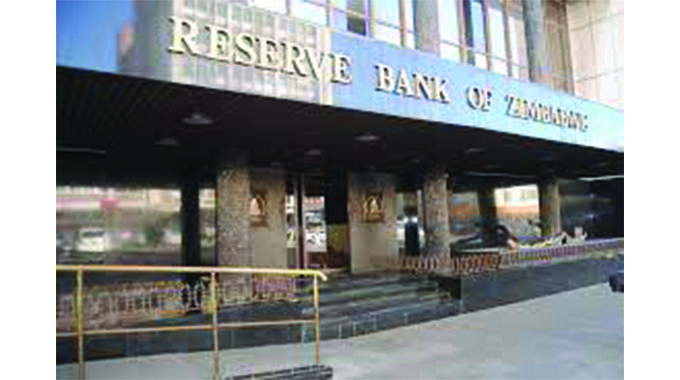WHILE Government is taking steps to ensure availability of basic goods to all citizens, consumers have expressed concern over acts of sabotage by some greedy businesses which stand accused of trading certain products only in forex in defiance of a clear monetary policy.

Basic goods
In order to ensure stability and promote ease of transacting, Government has allowed use of both the local dollar and foreign currency within the framework of a multi-currency principle, which has been entrenched into law.
However, a snap survey conducted by Chronicle in Bulawayo, has shown that some businesses are now by-passing set policy provisions by refusing local currency sales for selected basic goods such as mealie-meal and cooking oil.
In some instances, some suppliers of key commodities are reportedly channelling their produce to the informal sector for sale in forex only, thereby creating artificial shortages of basics like mealie-meal, cooking oil, flour and sugar, which are currently found mostly in “cash only” shops and on pavements down town.

Reserve Bank of Zimbabwe
This is happening at a time when most producers are benefitting from the Reserve Bank of Zimbabwe’s official forex auction system, which has dished over US$3 billion to businesses since its commencement on June 2020.
With no option, consumers are forced to buy forex at a premium on the speculative parallel market, which erodes their earnings and perpetuates exchange rate distortion and price volatility.
Established retailers have also raised concern that supplies were now limited and yet the same products were flooding the informal sector at a time when main retail dealers endure scarcity.
The few supermarkets that had stocks were selling imported mealie-meal from Zambia, Botswana and South Africa with most local brands sold for forex only.
This is despite clear Government guideline for use of both local dollar and forex guided by the prevailing official weekly forex auction system and interbank rate.
While violators of this law face a minimum civil penalty of $20 million, Government has said the law does allow a 10 percent addition to the interbank rate, which will cover any changes between the customer paying and the seller buying new stock and the margin banks charge.
Consumer Council of Zimbabwe regional manager, Mr Comfort Muchekeza confirmed that basic goods were fast disappearing from major retail outlets only to emerge in the informal sector.
“The chain stores hardly have basic commodities, but all these products are there in small shops where they sell strictly in forex,” he said.
“These shops don’t accept the Zimbabwean dollar or other form of payments like swipe or EcoCash, One Money and Telecash.
“It seems they also get preferential treatment in terms of supply from producers in and around Bulawayo. Even those in Harare prefer to trade with these small shops as they buy using hard cash.”
National Consumer Rights Association spokesperson Mr Effie Ncube concurred, saying mealie meal, in particular, was the most abused commodity.
“The availability of mealie meal is dependent on where one is buying from and we have since noted that prices have just shot up even in USD from nowhere without any justification.
“For most of the time basics are now found in smaller shops in Bulawayo, usually the black-market shops and they are slowly disappearing from large supermarkets where most of us buy from,” said Mr Ncube.

Confederation of Zimbabwe Retailers president Mr Denford Mutashu
In response, Confederation of Zimbabwe Retailers Association president Mr Denford Mutashu acknowledged the development, but absolved members of wrong-doing saying they were also struggling to get supplies from producers using the local currency.
“This challenge is basically related to supply patterns as we have been failing to restock as suppliers now refer those who buy in hard cash,” said Mr Mutashu.
“We don’t have hard cash as consumers prefer to give traders who then swipe leaving us with nothing.
For the past days we have struggled to get any supplies, we are told there are no products but when other informal traders ask for the same, they easily and quickly get the product.
“This is a looming crisis because it seems policies are only applicable to 30 percent formal traders, but informal traders who make 70 percent of the economy are enjoying without any controls.
“Sadly, we cannot afford to restock these basic goods and soon this would also apply to non-essentials as suppliers now want to deal with those who have forex only.”

Bulawayo Provincial Affairs and Devolution Minister Judith Ncube
Contacted for comment Bulawayo Minister for Provincial Affairs and Devolution, Cde Judith Ncube said her office has also received similar concerns.
“I have been approached over the same and surely this is a challenge, which should be addressed as a matter of urgency,” she said.
“We are currently working on engaging all stakeholders involved to map the way forward so that no one suffers.
“In the meantime, I will be engaging my colleagues in Government to ensure that this is resolved soon,” said Cde Ncube.
Industry and commerce Deputy Minister Raj Modi said the problem of shortages was artificial.
“Since the Government opened for duty free commodities there is a lot of mealie meal that has come in from outside the country hence there cannot be any shortages in supermarkets,” he said. Chronicle
 Nhau News Online News that is accurate, reliable, trustworthy!!
Nhau News Online News that is accurate, reliable, trustworthy!!
